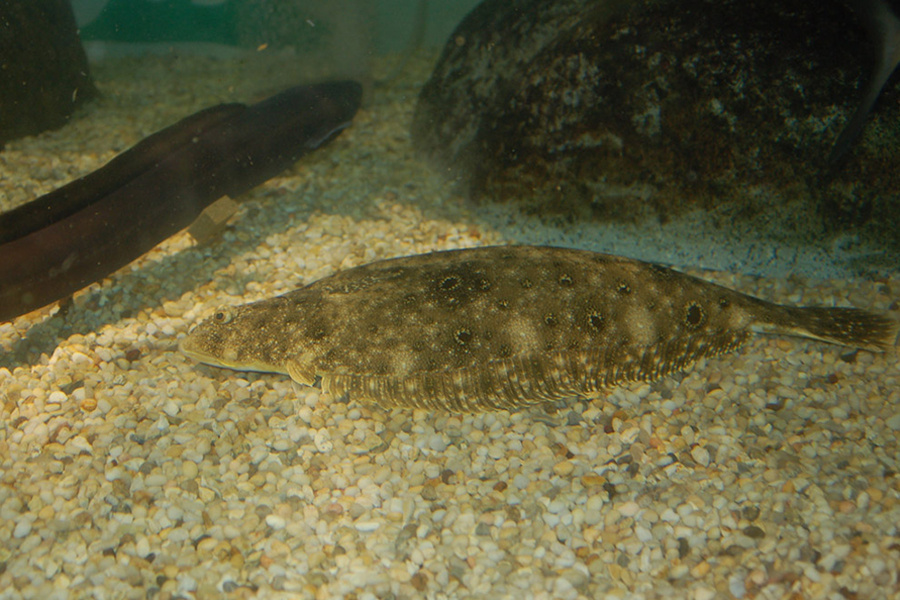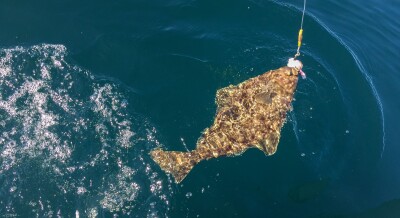Summer flounder is a popular commercial fishery in the Mid-Atlantic region, with North Carolina allocated the largest share at 27.44 percent. Despite the widespread disruption in markets from covid-19, the state’s fleet by early summer was on track for landings just slightly lower than 2019.
Preliminary statistics show 69 North Carolina vessels representing 131 trips had landed 744,479 pounds of summer flounder by late June, with a value of $2.67 million distributed to 16 dealers.
“Landings of summer flounder appear to be somewhat down from last year, but the trend seems similar,” said Lee Paramore, biologist supervisor with the North Carolina Division of Marine Fisheries. “Since we can modify trip limits to stay within quota, it may be possible to allow for increased harvest if landings remain down relative to last year.
“There a lot of factors that can impact landings, and we haven’t yet determined if covid will play a part, but currently the fish houses here that typically land summer flounder have been operating at same level.”
The state’s commercial landings for summer flounder have been consistent since 2008 ,with the exception of 2012-13, where excessive shoaling in Oregon Inlet limited the number of trawl boats able to land in North Carolina. Annual commercial landings averaged 2.25 million pounds of summer flounder since 2008.
The state’s industry landed 1.56 million pounds of summer flounder valued $6.32 million in 2017. The winter trawl fishery is the primary commercial fishery for summer flounder in North Carolina and occurs from December to April, making up nearly 99 percent of the annual landings since 2008.
Currently retail prices for summer flounder range from $8 to $15 a pound.
According to the 2019 stock assessment, summer flounder are not overfished and not subject to overfishing. Not the case for the North Carolina’s other flounder season — the valuable southern flounder fishery.
The North Carolina Marine Fisheries Commission voted to accept the recommendations of the Division of Marine Fisheries to reduce the southern flounder harvest for both commercial and recreational fishing by 62 percent starting this fall and a 72 percent reduction in harvest beginning in 2020.
Commercial flounder fishing goes into high gear in the fall, and these recommendations would affect the local commercial fishermen and the flounder supply to restaurants and the public.
Local Seafood, headquartered in Raleigh, N.C., had a quick response to the plan.
“We support the state’s efforts to improve stocks and create a sustainable southern flounder fishery,” according to a statement from the company. “However, the reduction time line is too drastic for North Carolina’s seafood industry to withstand. We feel the reduction time line should be expanded to alleviate the burden on commercial fishermen.
“In 2020, the season for both recreational and commercial fishing for flounder would reopen in mid-August. The recreational season would last until the end of September, while commercial fishermen would again have their season set geographically.”
The stakes are high. Southern flounder is a valuable commercial fishery for North Carolina and was worth $5.66 million in 2017. In 2018, a total of 903,568 pounds of southern flounder were landed at a value of $3.82 million. In 2019, the first six-month total was 104,450 pounds, much higher than the first half total for 2018, which was 74,026 pounds.
Southern flounder is one of three main species of flounder landed on the North Carolina coast, along with summer flounder and gulf flounder.
The Southern Flounder Fishery Management Plan is scheduled for completion in 2021. North Carolina law mandates that fishery management plans include measures to end overfishing within two years of adoption and rebuild the stock to achieve sustainable harvest within 10 years of adoption of a fishery management plan.
The 2019 adopted plan divided the commercial fishery into three management areas: Northern, open Sept. 15-Oct.13; Central, open Oct. 1-26; Southern, open Oct. 1-Nov. 15.







